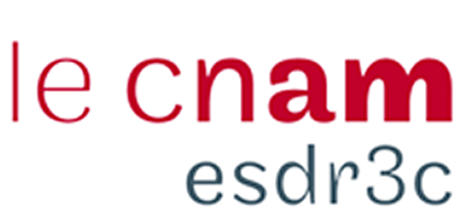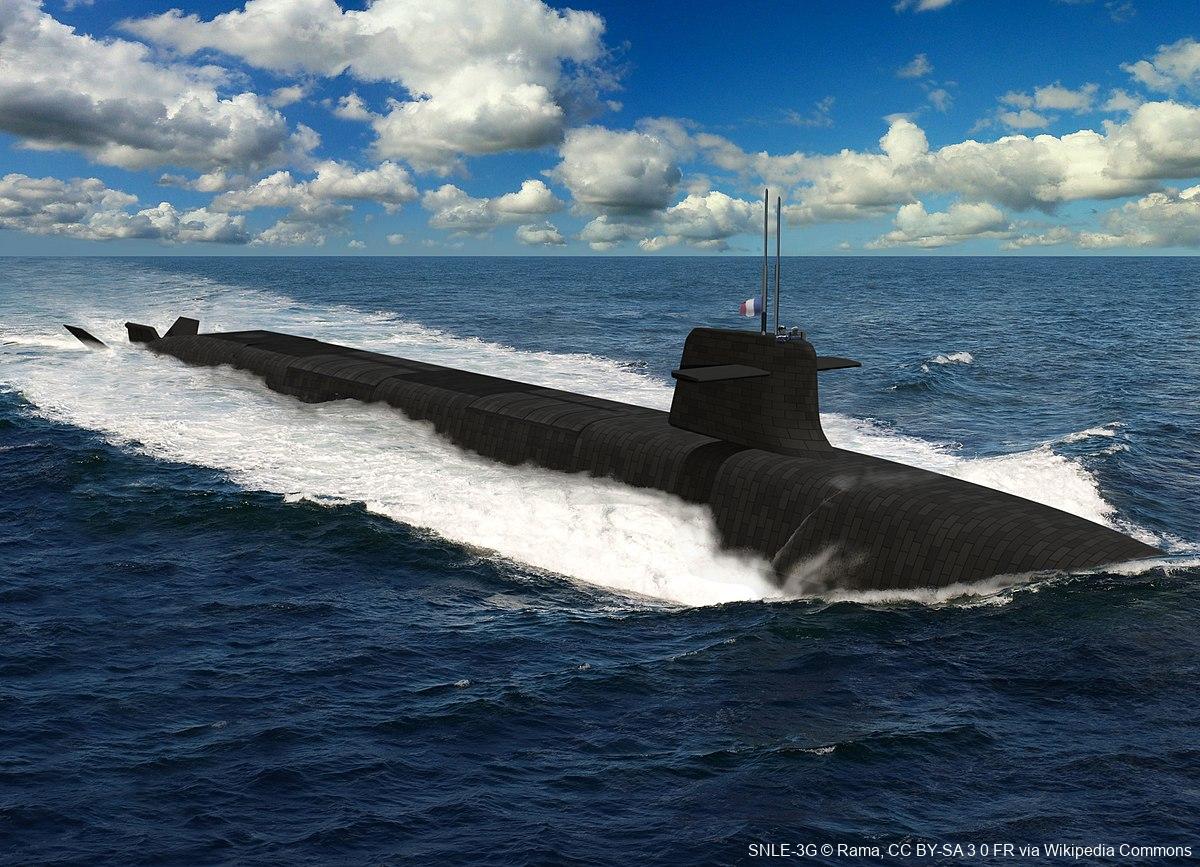Alors que la situation stratégique internationale s’assombrit, la nouvelle administration américaine bouleverse la réassurance atlantique. Dans ce contexte, le débat sur la dissuasion nucléaire française et sur le rôle qu’elle pourrait jouer au profit de la sécurité du continent prend un tour inédit. Ce constat liminaire est le prélude à l’analyse menée par le présent papier. Il aborde dans un premier temps la question de la « dimension européenne » des intérêts de sécurité de la France. Il poursuit avec l’examen des aspects doctrinaux et capacitaires de la dissuasion nucléaire française. Il ouvre ensuite sur les lignes de forces d’une contribution de cette dissuasion nucléaire française à la sécurité européenne qui pourraient être envisagées.
Les opinions exprimées dans cet article n'engagent pas le CNAM.
Les références originales de cet article sont : Emmanuelle MAITRE, « The French nuclear deterrent in a changing strategic environment », FRS, Note de la FRS n°04/2025. Ce texte, ainsi que d’autres publications, peuvent être consultés sur le site de la FRS.
The first fifty days of the second Trump administration have created a shockwave in Europe, due to the very harsh treatment of European allies in Washington, the open arm policy of D. Trump towards Putin’s Russia and his threat to stop supporting Ukraine.
In this context, President Macron has repeated some of his statements made last year on the possibility for the French nuclear deterrence to constitute a protection for Europe. Seen from Paris, the Trump administration’s declarations tend to give credit to the calls made by Paris for several years to strengthen Europe’s ability to defend itself. In this connection, Paris has for long indicated that its nuclear deterrent could become an element of security for Europe at large, given the “European dimension of French vital interests”. This has not changed on the substance, but what is new is the more public engagement of European partners on the role France’s nuclear arsenal could play in the defense of the continent.
A sovereign capacity, but a protection that goes beyond national borders
For several decades, French presidents have publicly stated that French vital interests “have a European dimension”. Such a statement has thus been a regular feature in Macron’s discourse on European security, starting with his speech in 2020, in the major speech on nuclear deterrence pronounced at École de Guerre[1], these remarks have given rise to questions about the integration of French nuclear deterrence into the more global security of Europe.
On the one hand, French deterrence, like the British one, contributes to NATO’s overall deterrence architecture. Despite Paris’ refusal to participate in the shared deterrence mechanisms within the Alliance – France is for instance not a member of NATO’s Nuclear Planning Group –, it recognizes that it contributes to its security thanks to this indepen-dent capacity. This has been expressed at NATO since 1974 when the Ottawa Communiqué indicated that “two of the European members possess nuclear forces capable of playing a deterrent role of their own contributing to the overall strengthening of the deterrence of the Alliance”.[2]
At the bilateral level, France has grown closer to the United Kingdom since the 1990s, with various cooperation projects. The two countries have stated that “there is no situation in which the vital interests of France or the United Kingdom could be threatened without those of the other country being equally threatened”.[3]
As regards the other countries on the continent, there is currently no unconditional commitment nor plan for advanced cooperation or “sharing” of the French deterrent, even within the European Union. In a context of re-emergence of a Russian threat on Europe’s borders and doubts about the strength of American security guarantees, several elements should nevertheless be mentioned. First of all, President Macron has repeatedly called on his partners to engage in a “strategic dialogue” on French deterrence and to participate, as observers, in nuclear forces exercises. Furthermore, in some European capitals, particularly Berlin and Warsaw, voices have been raised questioning whether French deterrence should be considered as a complement to the American guarantee, or even as an alternative to the latter if it were to be called into question.
Yet, if Emmanuel Macron’s recent declaration displays a will to be proactive and to go beyond what previous presidents proposed, the contribution of France to Europe’s security is framed by its inherent characteristics, in particular regarding doctrine and force structures.
A stable and regularly reaffirmed doctrine
France’s nuclear doctrine has shown little evolution since the genesis of the nuclear capabilities. It rests on two pillars: it is defensive and it must prevent any attack on the vital interests of the country. French nuclear deterrence was born with the aim of ensuring the survival of the nation facing the threat of an adversary far superior in terms of conventional military power. From the beginning, French nuclear deterrence has retained the ultimate protection of the nation’s vital interests as its main goal, even if it has evolved marginally. First of all, nuclear weapons have a purely defensive purpose and are in no way considered to have a military role. Their use “would only be conceivable in extreme circumstances of self-defense, a right enshrined in the Charter of the United Nations”.[4] According to the French doctrine, the use of nuclear weapons is only conceivable if an adversary were to attack the “vital interests of the country”. This concept is deliberately vague and open to interpretation, and could only be defined by the Head of State, but it probably includes the integrity of the French territory, the protection of its population and the sovereignty of the country. For several decades, successive presidents have nevertheless suggested that vital interests could go beyond the strictly French framework and in particular extend to allied European countries.
Because of its specific history, one of the main features of the French nuclear deterrent has been its independence. This is a requirement at both the political and the industrial levels. Thus, France has indeed sovereign control of the design, manufacturing, deployment and operation of its nuclear forces, including nuclear components of course, but also missiles, as well as aircraft and submarines carrying them. This is different from the United Kingdom, whose decision-making remains autonomous, but which buys its submarine-launched ballistic missiles (SSBN) from the United States. Secondly, France is fully independent regarding the planning of the nuclear mission, the selection of potential targets, the patrolling and exercises of the submarines and fighter jets, and naturally the decision of using nuclear weapons. The principle of independence has obvious consequences on what can be envisaged as France assumes a more visible role in the protection of Europe. In the current context:
- France intends to preserve a fully sovereign control over its nuclear capabilities, and is therefore not willing to accept any suggestion of working jointly with partners on the development of nuclear systems such as missiles or to accept any co-funding or industrial assistance in the investments made in support of the nuclear mission;
- The French president remains the only person in a position to decide the employment of nuclear weapons or to assess what constitutes a violation of the country’s vital interests. There can therefore be no concertation, co-decision or involvement of allies in these aspects. This was emphasized by Emmanuel Macron in his 5 March 2025 allocution, where he insisted that “our nuclear deterrent protects us; it is complete, sovereign and French through and through” and that “[w]hatever happens, the decision has always been and will remain in the hands of the President of the Republic”.[5]
Tailored capabilities
The French President’s renewed openness about France’s nuclear deterrent playing a role in Europe has entailed questions related not only to the independent nature of the French doctrine but also to the operational ability of France to extend the protection of its deterrent beyond its borders.
In line with its doctrine, and following the geopolitical developments linked to the disappearance of the Warsaw Pact and the Soviet Union, France has developed its arsenal around the notion of “strict sufficiency”. This implies that it develops only a minimal volume of weapons, considered credible enough to reliably cause an adversary “unacceptable damage”. It is therefore not a question of adapting the arsenal to an adversary’s capabilities or of embarking on any form of arms race, which would in any case be impossible to sustain in view of the size of the national budgets allocated to defense. For several terms now, successive French presidents have stated that the arsenal consists of fewer than 300 weapons, which currently places France in fourth place among P5 nuclear states, behind Russia, the United States and China.
The arsenal is built around two components. Historically, the first is the airborne component (Strategic Air Force, or FAS). It now relies on two Rafale squadrons, or about forty aircraft. The Rafale can also carry an arsenal of 54 nuclear-armed ASMPA cruise missiles. By presidential order, around ten Rafale Marine can also carry ASMPA on the Charles de Gaulle aircraft carrier. The second component is the Strategic Oceanic Force (FOST). This includes four SSBNs, each of which is equipped with 16 M51 ballistic missiles. These have an intercontinental range of around 10,000 km, and each carries six independent nuclear warheads.
In addition to the political and doctrinal considerations listed above, the limited size of the French arsenal makes the proposition of substituting it to current NATO mechanisms irrelevant. It would be extremely difficult to imagine basing some of French nuclear weapons abroad on the model of NATO nuclear sharing arrangement: given the reduced pool of available weapons, this would require substantive costs and might disrupt the credibility of the entire system.
Therefore, France does not have neither the will nor the capacity to substitute itself to the United States or to adopt a strategy that would require a larger arsenal. In the foreseeable future, its arsenal will be realistically sized to ensure damage to any attack that would threaten its vital interests. The inclusion of European interests in the definition of the “French vital interests” does not modify the calculus of what types and numbers of weapons are necessary to assess the planned damage. Strict sufficiency is currently determined in relation to the performance of French weapons and the defensive capabilities of potential adversaries. Geographic considerations linked to the territory protected do not appear to be pertinent in this assessment.
Perspectives
Following President Macron’s March 2025 speech, questions are being raised on what can be done now to materialize France’s commitment towards its partners. Taking into account the limitations listed above, and in particular the fact that France has no intention at this stage to relinquish any element of its sovereignty on the nuclear domain, the contribution to European security can be conceived among these lines:
- The President’s repeated assertion that France’s “nuclear deterrence plays a role in the preservation of peace and security in Europe” is a political declaration that indicates that in his eyes, the appreciation of the vital interests would not be made on a strictly national basis: circumstances where partners would find themselves in extreme self-defense situations may be considered as well. The declaration in itself has a political value and may be judged as such by potential opponents. Its credibi-lity towards adversaries is hard to assess from the outside, but it is interesting to note that Sergei Lavrov has reacted to these declarations and described them as a threat to Russia.[6] Regarding allies and partners, we can clearly observe that while many leaders were skeptical until a few months ago, they have been more open about their interest since the second Trump administration took command.[7] However, the volatility of the political situation in France and the anti-European and nationalistic views of a large part of the French political scene tend to limit the trust that partners can have in the solidity of the French propositions.[8]
- Since 2020, Emmanuel Macron’s communication on the issue has referred to a “strategic dialogue” with allies and partners. Such dialogue has actually already started and discussions take place in various formats. One of its objectives is to discuss the role that France’s deterrence plays in the protection of Europe. Contrary to some expectations, this dialogue does not aim at changing the way things are currently working, or to propose major reforms, but at trying to create a shared assessment of the strategic situation and of the role played by nuclear deterrence. It may also be instrumental in discussing how French nuclear capacities may articulate with other European assets contributing to a global strategy of deterrence, including conventional systems or defensive architecture.
- Indeed, one of the elements put forward by E. Macron in 2024 was the idea that different European partners could contribute differently to Europe’s defense, through a form of specialization: one of France’s autonomous contributions would in that context be the nuclear force, while other countries might invest in complementary fields, such as antimissile defense or deep strike assets.[9] This logic of “specialization” may be privileged in the future.
- Finally, one of the only practical propositions so far has been the participation of partners as observers to France’s nuclear exercises. In line with the presidential proposals, at least one refueling plane from a European partner (Italy) took part in a strategic air force exercise, simulating an adversary’s defensive aircraft. We could imagine that this type of participation may become more frequent in the future, without putting in question the ability of France to conduct a nuclear raid on its own.
Presidential statements at the highest level, repeated and misinterpreted, combined with editorials by former European officials without official functions,[10] have created confusion about a possible “Europeanization” of nuclear deterrence. This notion continues to raise many questions that reflect the concrete difficulties and the limits of the proposal, the lack of clarity of the French authorities and the lingering hesitations of the European partners to go further in their dialogue with Paris. In the present context, it is worth noting that Paris’ intention is not and has never been to recreate a form of extended deterrence on the European continent, inspired by the NATO model. However, this does not mean that the debate stops there. Since 2020, technical discussions have taken place with various European partners on French nuclear strategy. In the future, this dialogue will probably intensify, and a reflection could emerge on how European conventional forces could support and reinforce the French nuclear strike force, in an emerging logic of distribution of roles. The notion of “Europeanization” must therefore be analyzed in all its complexity, with nuance and pragmatism, but also taking into account the probable changes in the European security landscape in the years to come.
References
Par : Emmanuelle MAITRE
Source : Fondation pour la recherche stratégique
































